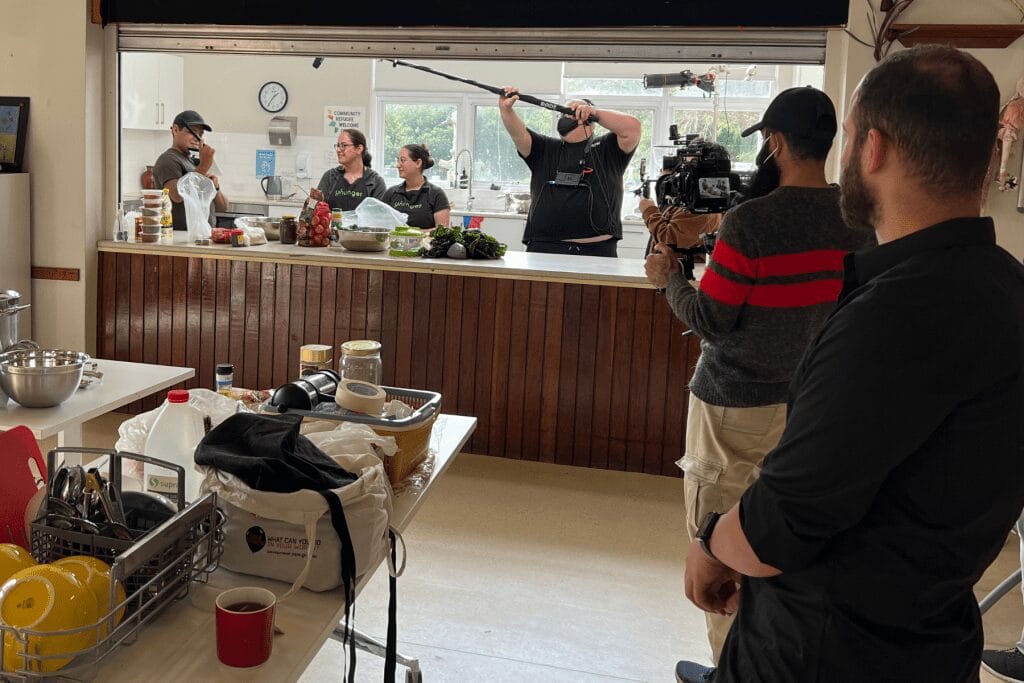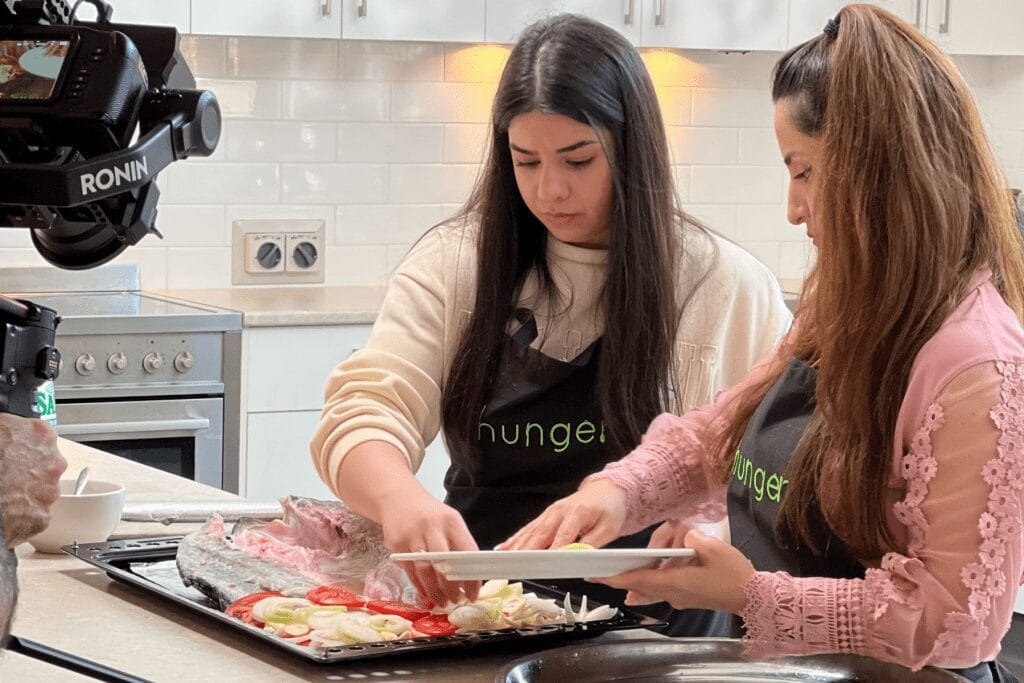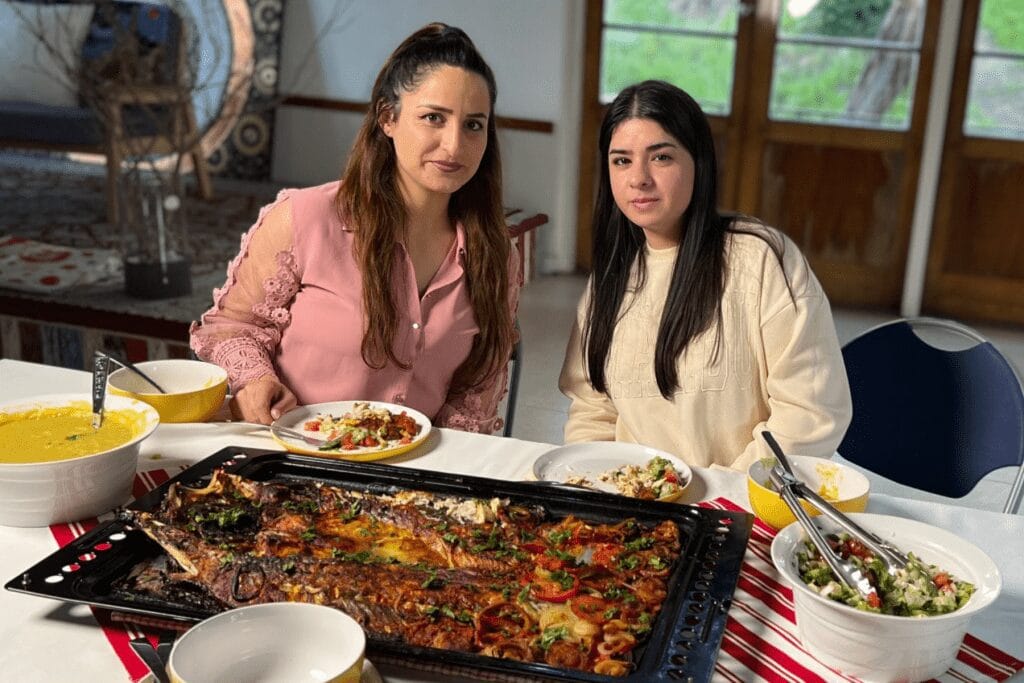Food films share ‘powerful and important’ stories

Two students from Navitas Skilled Futures Youth Class in Fairfield are starring in their own “food story” films after winning a competition that focussed on the personal and cultural significance of food for people from diverse backgrounds.
Marwah Mader and Marleen Jameel, both refugee students from Iraq, entered the competition along with the rest of their classmates more than a year ago, each providing a family recipe and their attachment to it through a “food story”. Although the process was delayed by COVID, they finally got to view their videos today (Thursday 16 June) at a short film screening in Fairfield, ahead of Refugee Week.

The My Food Story Competition was run by Sydney Local Health District’s Youthblock Youth Health Service program Yhunger (Younger Hunger) as part of the Refugee and Asylum Seeking Youth (RASY) project, a collaboration with the NSW Refugee Health Service, Settlement Services International, Western Sydney’s Multicultural Health Services, and CuriousWorks.
The project invited 14 to 25 year olds from Culturally and Linguistically Diverse (CALD) backgrounds to produce a story about a favourite dish that reminded them of “a time, place, people and sensations”.
The prize was a two-day filmmaking workshop at Lilyfield’s Community Refugee Welcome Centre, culminating in the creation of the dishes on camera, which transformed the winning stories into five-minute short films. The films were shown in the PYT Fairfield theatre.

Project coordinator Rowena Yamazaki, from Youthblock, said My Food Story was part of the Yhunger RASY project’s commitment to create more resources that encourage conversations with young people about food, health and wellbeing, especially relating to cultural diversity.
“Food is not just about eating – there is a lot more to it,” Rowena said.
“It is also about what it means to you, and it can help others understand where you have come from.
“With this [project] we wanted to create a space where we could hear a young person’s perspective about how food relates to their settlement journey, in their own words, and their own way.”

Navitas Skilled Futures Youth Class teacher Camilla Portela said her whole class had embraced the project, working on their food stories in the classroom and submitting their entries in English. She said winning students, Marwah and Marleen, had both already come so far overcoming the trauma and obstacles faced as refugees, and now they had grown in confidence and capability through their experience with this project.
“This has really helped these girls move from dependent to independent learners, as part of their transition from being in survival mode for so long to feeling safe to meet new people, visit new places and grow in confidence,” Camilla said.
“For many refugees their cultural legacy is defined by their past. But they have to replace that with a new life story. And cooking is one of the ways they can do that. It is something positive from their culture that they can pass on to the next generation in a nice way.”
As a bonus, the students were able to each take a fellow classmate with them to the workshop, who then helped prepare and cook their dishes with them in the short films.
Marwah, 24, made Dolma for her Food Story, a traditional Iraqi dish commonly shared at every family event. She was helped by fellow student Wasan Al-Tomina.
“I want to share something related to my country to show that Iraq is not just about war but that it’s a beautiful country with lots of things to share,” she said. “Because Dolma is delicious I want to share so people can try.”

Marleen, who cooked grilled fish (Masgouf) with classmate Katreen Zebare, said she was also proud to share a dish from her homeland with other cultures, and was grateful for the new opportunities provided by this project.
“I liked meeting different people and the planning day was also interesting,” she said. “I learnt new words, improved my vocabulary, it has helped me communicate with different people. I have felt there are difficulties because of the language barrier but this project has made me more social.”

Miranda Aguilar from CuriousWorks thanked the students for the privilege of sharing their “intimate and beautiful” stories with others.
“It’s not just about food. It’s about memories, perspectives and transporting you to different cultures and worlds,” Miranda said.
“Thank you for sharing your stories with us because they are powerful and important.”
The winning films, which included a third story from a Year 9 student of Chinese heritage from St George Girls High School, are now undergoing some final editing and will be posted to YouTube by CuriousWorks in July. The food stories will also feature in Yhunger training for youth settlement programs, refugee health services and schools. New editions of the Yhunger cookbooks include more recipes from refugee communities in NSW.


